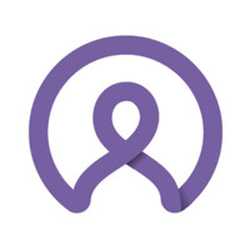


Managing employee shifts efficiently is a critical challenge for businesses
Managing employee shifts efficiently is a critical challenge for businesses, especially in industries such as retail, healthcare, hospitality, and manufacturing. Creating and updating work schedules manually can be time-consuming and prone to errors. With multiple employees, varying availability, and fluctuating demand, scheduling becomes a task that demands attention to detail. This is where shift management software comes into play.
Shift management software is a digital tool designed to simplify the process of scheduling and managing employees’ shifts. It enables managers to assign shifts based on employee availability, business requirements, and compliance with labor laws. The software typically includes features for tracking attendance, managing overtime, and providing real-time updates to employees.
Here are the core features that make shift management software a game-changer for businesses:
Automated Scheduling
One of the most valuable features of shift management software is its ability to automate the scheduling process. It allows managers to set up rules for shift assignments, ensuring that shifts are allocated based on employee preferences, availability, and skill set. By doing this, the software reduces manual errors and helps prevent scheduling conflicts.
Real-Time Shift Tracking
Shift management software provides real-time tracking of employees’ attendance and shift adherence. This feature enables managers to know instantly whether an employee has arrived on time or if they are absent. It helps in monitoring tardiness, reducing absenteeism, and ensuring that shifts are properly covered.
Integration with timesheet software further ensures that work hours are accurately tracked for payroll purposes.
Shift management software can seamlessly integrate with other business systems to provide a comprehensive HR solution. Here’s how it works with tools like employee management software, timesheet management software, and others:
Shift management software integrates with employee engagement tools to create a more engaging work environment. Through integrated platforms, employees can see their schedules, provide feedback, and manage their time off. This connection improves employee satisfaction and boosts overall engagement.
Shift management software often integrates with timesheet software to ensure that work hours are accurately tracked for payroll purposes. When shifts are tracked in real time, businesses can easily monitor employee attendance, calculate wages, and eliminate payroll errors. It helps streamline the entire process from scheduling to payment.
When selecting the best shift management software for your business, consider the following factors:
Scalability: Ensure the software can grow with your business and handle an increasing number of employees.
User-Friendliness: The software should be easy for both managers and employees to use.
Mobile Accessibility: A mobile app is essential for employees working on the go to access their schedules.
Integration Capabilities: The software should integrate well with existing tools like payroll systems, employee management systems, and other HR platforms.
Customization Options: Look for a solution that allows you to tailor features to suit your specific business needs.
Cost-Effectiveness: Choose software that fits within your budget without compromising on features.
Shift management software is an invaluable tool for businesses looking to streamline their workforce scheduling, improve employee satisfaction, and reduce labor costs. By automating scheduling, providing real-time tracking, and integrating with other HR tools like employee engagement software, timesheet software, employee management software, and recruitment software, businesses can create a more efficient, productive, and compliant workforce.
